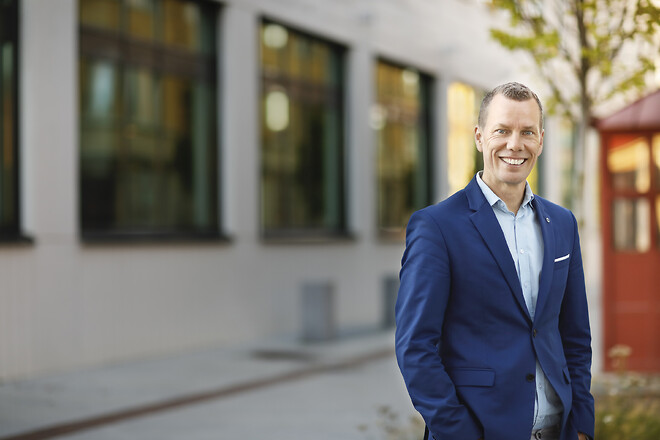Björn Arvidsson: “We need robust and recognized ecosystems for continued competitiveness”
Traditionally, Sweden has been strong in life science, which is largely due to our universities as ideas and competence engines, the focus of individual players, excellent collaboration with society’s user environments and the attraction of successful major companies. However, for continued competitiveness today, entire ecosystems must be secured and recognized internationally.
The Stockholm Science City Foundation recently released its compilation of the capital region’s life science. It reveals that from Södertälje, via Flemingsberg and Hagastaden to Uppsala, the number of players has increased by 50% over a ten-year period, and today, the region accounts for almost half of Swedish life science. In Uppsala alone, the turnover of companies has quadrupled since 2005. The capital region is bursting with research, companies and support functions, making it the most innovative region in Europe and a unicorn factory that only Silicon Valley can challenge.
We often emphasise the value of access to international capital and talent, but for them to find their way here, we need a good story, people who convey it to the world, as well as compliance with it. These ecosystems need to be robust and seamless engines for collaboration.
In Swedish life science, there are two major regions: The Oresund and the capital region. In the first, the largest part is found on the other side of the strait connected by the Oresund Bridge, but in the latter, Uppsala contributes with as much as a third – despite the fact that it has a fraction of the population.
In order to weld Stockholm and Uppsala together to get maximum exchange, the state is now backing the previous agreement on four railway lines. We see almost the same number of people travelling in each direction, also, Uppsala is the fastest growing city in the country. This development is entirely dependent on a solid industry, a well-educated population but also promises of reliable communication with Arlanda and Stockholm.
When the large international companies are looking to acquire tomorrow’s medicines and other innovations, they are contemplating areas such as the Oresund and capital region. This also applies to heavy investors, who like to focus on areas with a strong innovation culture and ecosystems that benefit from all their advantages.
We have idea carriers and excellent innovation opportunities, and now we must invest in creating ecosystems that provide them with even better growth opportunities by connecting and using larger parts of the systems so that we can reach out and attract the required funds for continued development and competitiveness.
Artikeln är en del av vårt tema om News in English.
